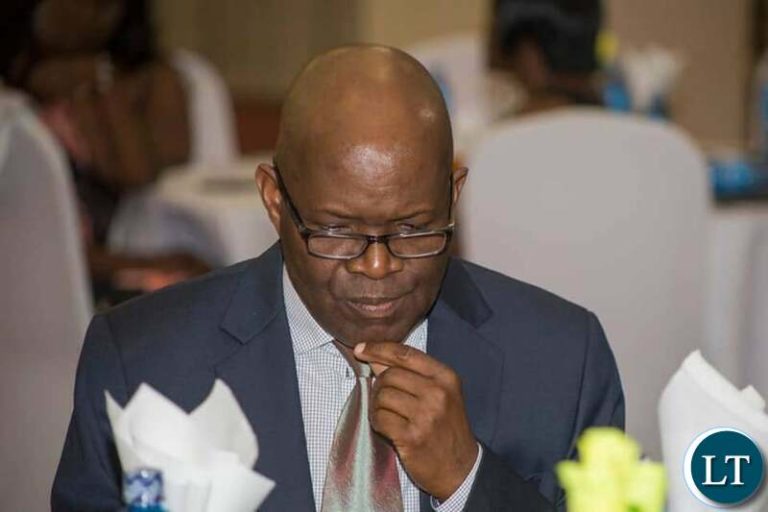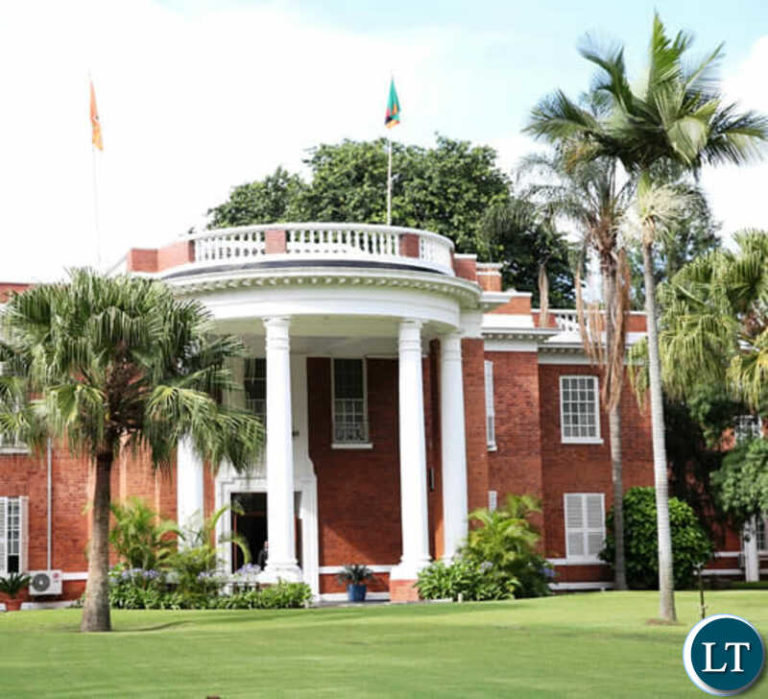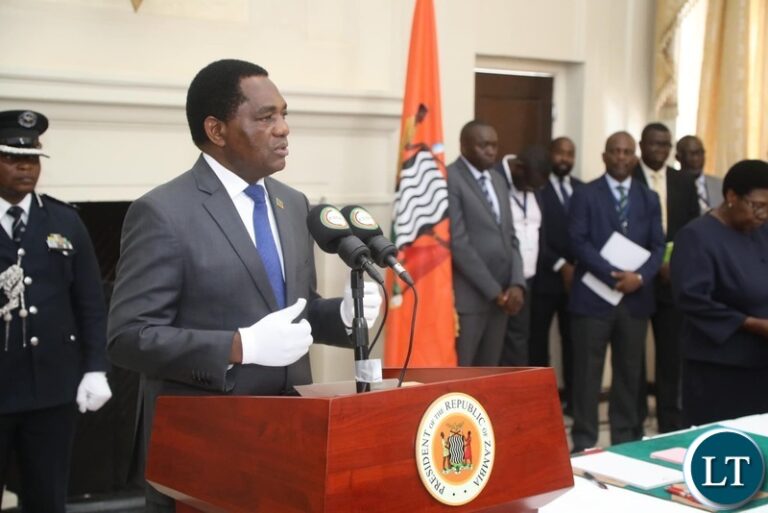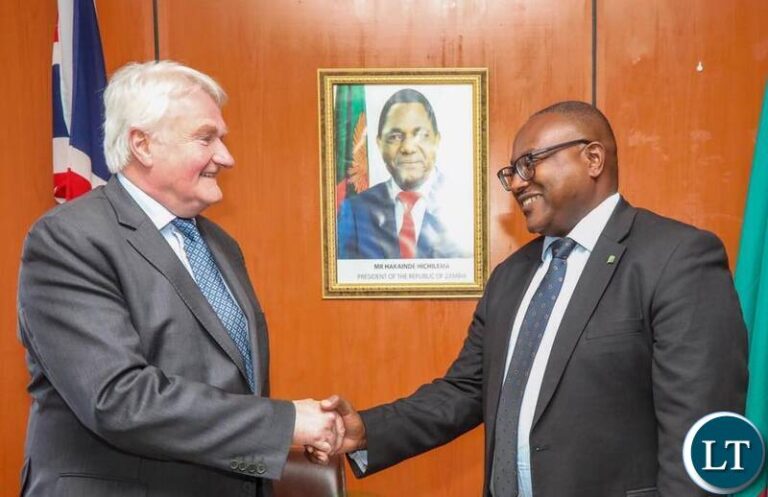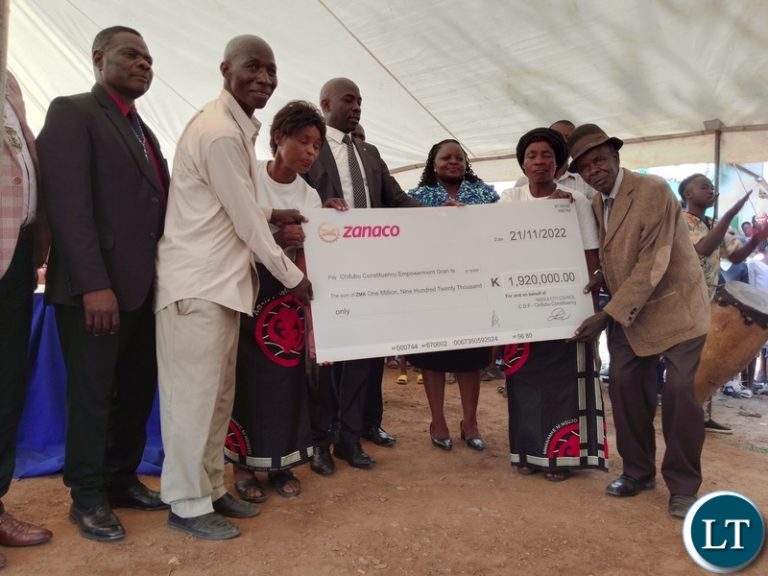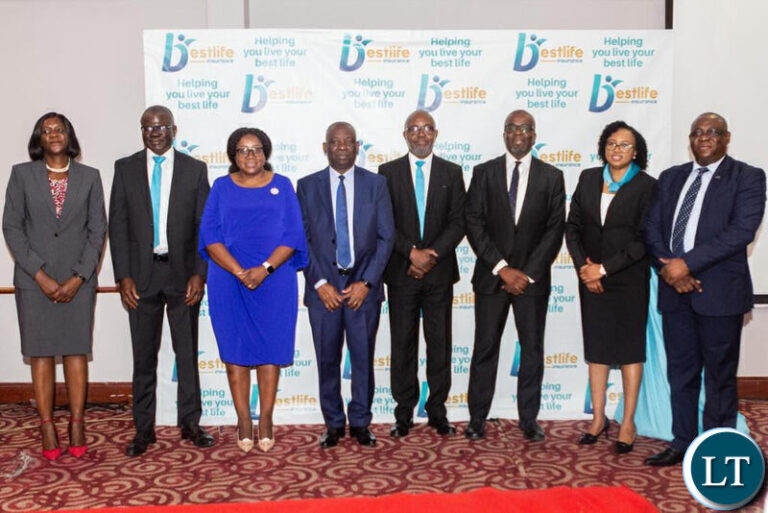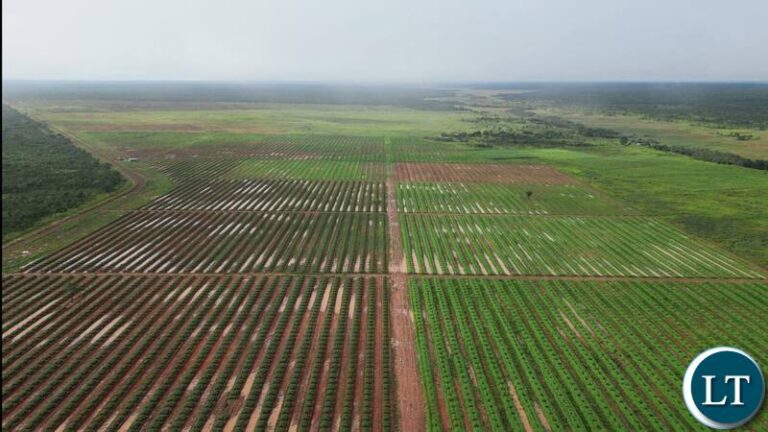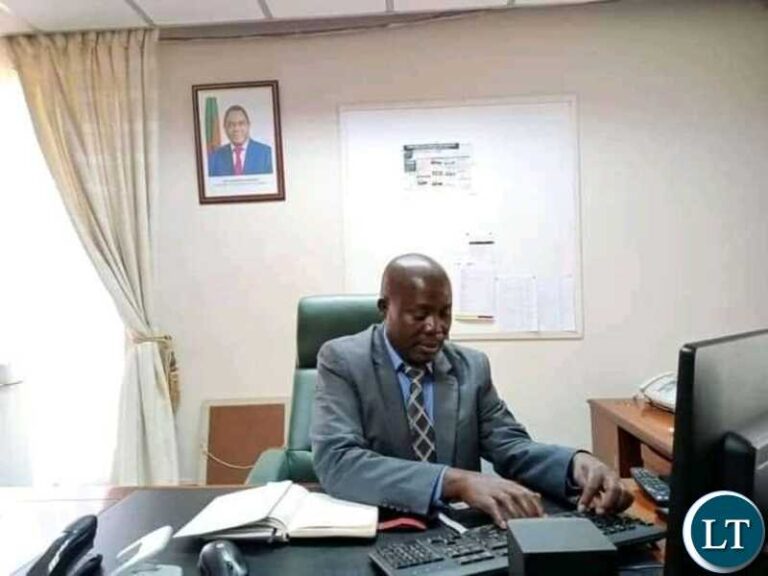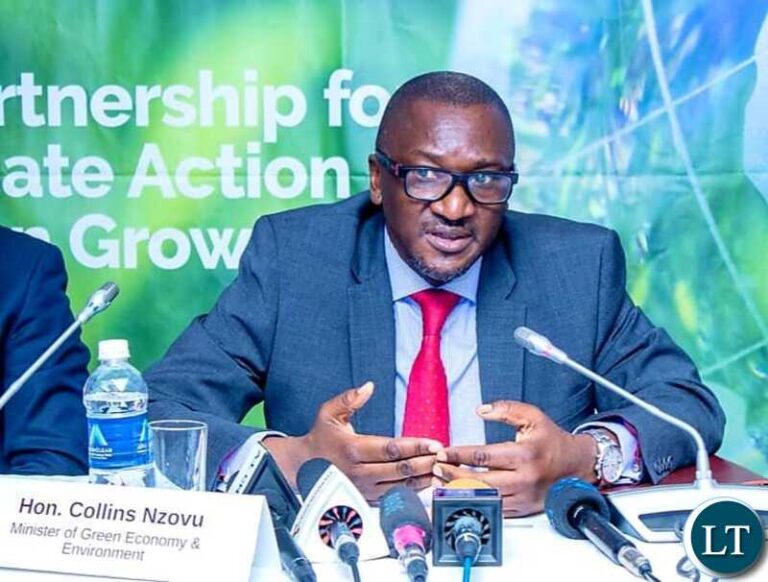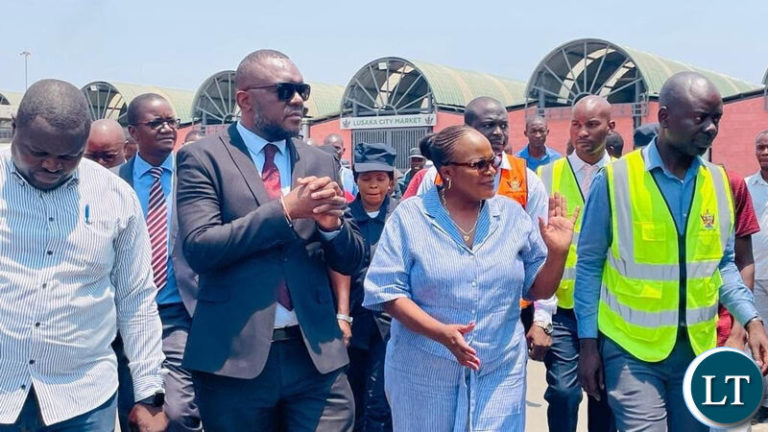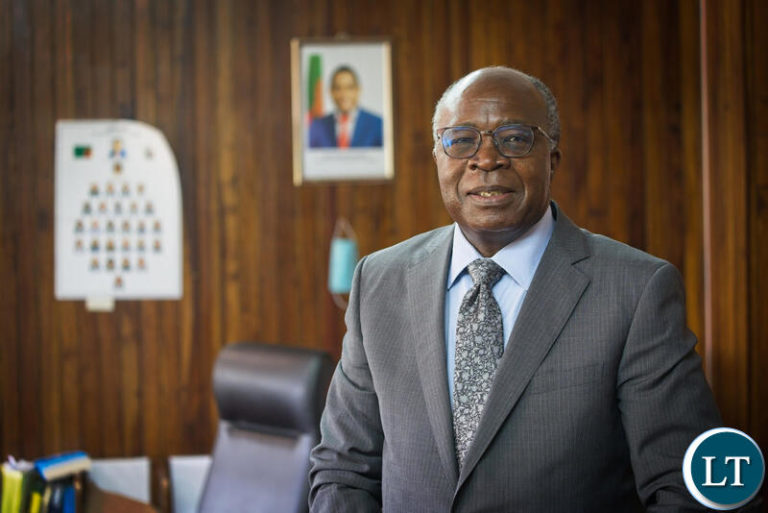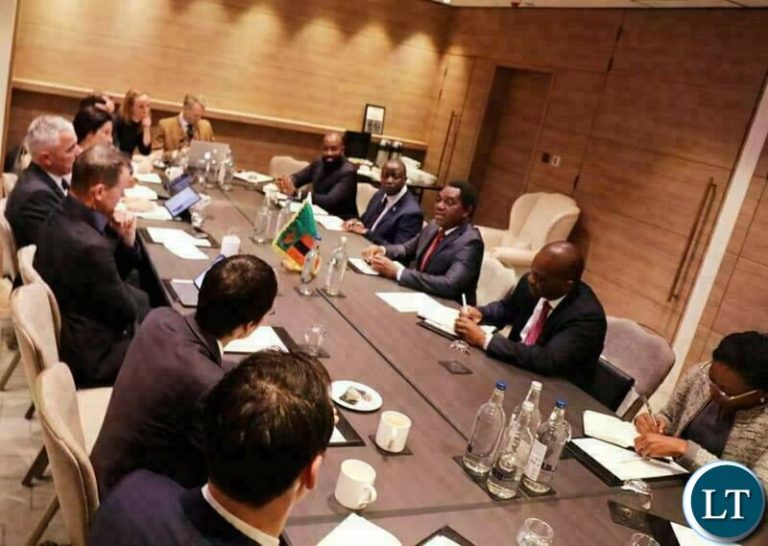BY SISHUWA SISHUWA – JUNE 1, 2023
Zambia’s next general election is not due until 2026, but President Hakainde Hichilema, elected in August 2021, has already devised a five-point plan for securing re-election at all costs. There is nothing wrong with planning ahead. The problem is that his plan, if successfully implemented, risks undermining Zambia’s hard-won democracy.
Broadly speaking, the plan rests on five objectives.
1) Contain the Catholic Church
The first involves containing the activities of the Roman Catholic Church, which has long played an important role in consolidating democracy in Zambia. Unlike its religious counterparts, the Church enjoys financial independence, protecting it from state intimidation and patronage. Its priests often take messages of political change to the Sunday pulpit and deliver them accessibly. Meanwhile, its bishops provide regular, mostly critical, pastoral letters on the state of the nation in a way that shapes public opinion. In opposition, Hichilema benefited from the unofficial support of the Church, which denounced his detention on the bogus charge of treason. Now in power, he looks determined to reduce its influence.
There appears to be a plan hatched at the highest level to contain the activities of the Church. This includes instigating divisions in the Zambia Conference of Catholic Bishops (ZCCB) to weaken its political influence; discrediting individual members of ZCCB by linking them to former president Edgar Lungu and his Patriotic Front (PF); and finding incriminating material on outspoken bishops and priests to diminish their public standing. The diocese in the capital Lusaka seems to have been specifically identified as a key target because it is headed by Archbishop Alick Banda, who is generally perceived to be an ally of Lungu.
Earlier this month, a sequence of developments gave the ruling UPND the opportunity to set a plan in motion. On 18 May, Hichilema held his first press conference of 2023 at which he suggested that minimal improvement in GDP and increased pledges of foreign direct investment were evidence of a growing economy. In response, journalist Virginia Chilongo listed some examples of unfulfilled promises before asking: “Citizens continue to complain that you merely speak without action – my question to you, Mr President, is how do you respond to such assertions?” Hichilema’s mumbled response left many unsatisfied. A few days later, Fr. Anthony Salangeta, a Catholic priest in Lusaka used his homily to portray the president as elitist and argued that macroeconomic growth means little to the poor if it does not reduce their cost of living. “Sometimes these politicians are liars,” he said. “You will find them talking about GDP and Millennium Development Goals, which some of us don’t even understand. They would even draw graphs.”
Hichilema, hypersensitive to criticism, hit back, denouncing Salangeta as an ignorant joker who should re-enrol in secondary school and benefit from the government’s free education policy. Other figures from the UPND joined in, saying the priest should “be taken to Rwanda and visit the museum where they have custody of results of inflammatory statements”. The leader of the Catholic Church in Lusaka, Alick Banda, defended Salangeta and vowed to “defend all priests in the archdiocese of Lusaka”. He added: “I ask the people of God to judge who is a real joker [between] a priest and a liar?”
This time, the reaction was even more swift and vicious. UPND Secretary-General Batuke Imenda condemned the archbishop as “the Lucifer of Zambia” and “a well-known PF political conman”. He called the use of the pulpit as a “political podium” a “devil scheme and a satanic philosophical tactic”. Finally, he announced the “UPND will consider the two [Salangeta and Banda] as political opponents, not as priests”. In what appears to be coordinated moves, traditional rulers and non-Catholic church leaders went on state media to join in the denouncements.
These attacks are not accidental but part of a long-planned assault on Catholic influence. Their aim, in this instance, is to isolate Banda and Salangeta from the wider Church, discredit them in a way that may result in their replacement, and send a warning to other bishops and priests. Former president Lungu employed a similar strategy when dealing with Banda’s predecessor prior to the 2021 election. That former archbishop – the forthright and upstanding Telesphore Mpundu – is now being attacked by the UPND for similarly criticising Hichilema’s leadership.
In terms of the election, the UPND is particularly worried about its electoral prospects in Lusaka and the Copperbelt, both won by Hichilema in 2021 for the first time and with a difference of only about 100,000 votes. These areas are home to large numbers of urban voters and have a significant Catholic Church presence.
2) Co-opt influential elites from civil society
The second element of the plan involves capturing influential elites from Zambia’s civil society, which has served as a check on power since the early-2000s. When Lungu undermined democracy, for instance, the actions and words of principled individuals – from academia, professional associations, churches – helped shape public opinion and contribute to his downfall. When Hichilema was elected, he moved to appoint many of these civic leaders to public bodies. While this may have benefited those state agencies, the co-optation of so many experienced figures weakened civil society to the point it is now largely unable to challenge the executive on governance.
In opposition, Hichilema promised to tackle corruption, enact constitutional and judicial reforms, and protect the environment. In power, he has hardly done any of these and, in some cases, has performed U-turns. For instance, when the PF was about to start industrial mining in one of Zambia’s greenest national parks, civil society successfully opposed the plan. Hichilema, eager to associate himself with popular causes, claimed he too was against the move. Now in government and having depleted civil society of its most effective leaders, however, his administration has proceeded to approve mining in the same park.
On other measures too, Hichilema is free to act knowing there are few left to hold him to account effectively. Official reports indicate increasing corruption in government, but the focus of the anti-corruption fight remains on former officials. The president phones independent media to complain whenever they carry stories that are critical of his leadership – a subtle form of intimidation. And Hichilema has refused to release the value of his assets and liabilities, despite being elected on a platform of accountability and transparency.
A cabinet minister told me the UPND has also hatched a scheme to use rogue websites – linked to State House – to discredit the credibility of the few remaining independent voices such as Brebner Changala, Telesphore Mpundu, and myself. “Soon, they will unleash UPND cadres to attack you and the others I have mentioned”, said the minister. “Their strategy is to use Facebook pages and websites that have been set up for malicious purposes to scandalise individuals who criticise the government and refuse to be co-opted into the government. These pages are operated by people linked to State House who cannot be touched by the police or ZICTA [Zambia Information and Communication Technology Authority, the government body that regulates communication services].”
3) Capture the electoral body and pack the courts
The third element involves the capture of two formal institutions that are critical to the management of elections: the Electoral Commission of Zambia (ECZ) and the judiciary. In opposition, Hichilema expressed dissatisfaction with the state of both and vowed to enact reforms that would strengthen and safeguard their independence. He promised a departure from the Lungu-era appointment of judges and ECZ commissioners devoid of public participation and vetting.
In power, Hichilema has reneged on these pledges and done precisely what he once opposed. Instead of implementing a transparent mechanism for appointing ECZ commissioners and judges, he has simply replaced Lungu’s picks with his own commissioners and hired 20 judges including to the Constitutional Court, which has final say on election disputes and where those seen as Hichilema allies now constitute the majority. The result is decreasing public confidence in the capacity of both the electoral body and the courts to arbitrate political contests fairly and impartially.
Hichilema and the UPND have demonstrated their readiness to manipulate not only the rules and norms of the democratic game but also the electoral body and the judicial process to secure political advantage. Last year, the ECZ – with the help of the courts – excluded key opposition candidates from taking part in two parliamentary by-elections on the Copperbelt. The polls were consequently won by the UPND. Well in advance of the 2026 elections, the stage has already been set for a possible disputed outcome.
4) Weaken opposition parties
The fourth element involves weakening opposition parties, mainly the PF and Socialist party led by Fred M’membe. Since losing the 2021 election, the PF has not crumbled for several reasons. First, the party has not held a convention to elect Lungu’s successor. This has kept the different factions jockeying for the leadership within its ranks in the belief they each have a chance. Second, MPs are disincentivised from leaving their parties as the constitution would bar them from running in the by-election. Third, the former ruling party retains a stable base both among the electorate, especially in the northern and eastern parts, and in parliament, where 56 of the 57 seats held by opposition parties belong to the PF. These factors – alongside an uncertain economic outlook and an incumbent seen as promoting ethnic-regional appointments – have left the PF confident of regaining power, whether in alliance with other parties or under new leadership.
Fearful of this prospect, Hichilema has sought to destabilise the PF. The government has threatened to deregister the main opposition party for alleged failure to submit the list of office bearers to the Registrar of Societies. It has brought charges against some leading leadership hopefuls for violations such as unlawful assembly. And the PF has also accused the government of working with one of its presidential candidates who has sued the party’s interim leaders for delaying holding the convention. The objective of the suit, the PF insists, is to weaken its leadership, keep the party in court at great cost, and force it to choose Lungu’s successor who the UPND can then target with more tailored charges.
The government is also targeting the Socialist Party (SP), which has won a string of ward by-elections in recent months. The SP is slowly coming to be seen as a viable alternative by voters who are unwilling to return to the PF and disillusioned by the UPND. Nonetheless, the small party has much work to do given that it lacks parliamentary representation, a distinct power base, a diverse team beyond its key leaders, and a language with which to connect its political agenda with the concerns of the electorate. It has, however, started positioning itself to win these votes. For instance, M’membe – who traces his left-leaning politics to his days in the South African Communist Party and African National Congress – has noted Hichilema’s pro-Western stance and has instead moved to establish close ties with China and Russia.
If the 64-year-old manages to transfer the attention he has secured on the international front to domestic politics, he could easily build momentum, especially if he forms a coalition with the PF and others. Fearful of this prospect, police sources disclosed that the government plans to arrest M’membe on a trumped-up gun-related charge aimed at securing a conviction that could disqualify him from running in 2026. Zambia’s constitution bars anyone serving a sentence of imprisonment or who has, in the immediate preceding five years, served a term of imprisonment of at least three years from standing for president.
5) Cover corruption tracks
The final element of the re-election strategy involves hiding corruption. Hichilema knows voters despise graft – a key reason they ejected Lungu – and he is determined to prevent not so much corruption itself but the perception of it.
The Anti-Corruption Commission (ACC) has been investigating both high-profile figures associated with Hichilema and Lungu. Its approach, however, has varied. With the latter, the ACC’s investigations have been high-profile. By contrast, soon after the ACC promised to disclose the outcome of its investigations into some of the former in March 2023 it went silent.
It is likely Hichilema fears that if a minister is arrested for corruption, they may expose their colleague’s graft, defect to the opposition, and undermine the bid for a second term. It is notable that the government’s anti-corruption strategy emphasises asset-tracing and recovery rather than prosecution and punishment. This approach has the effect of seeming to forgive corruption provided the thieving officials return part of the loot. It is one that has created a rift between State House and the ACC, whose highly regarded board chairperson, Musa Mwenye, may be frustrated into leaving the institution. “We must fight present corruption now and we must do it by showing that there are no sacred cows,” he recently told state-owned ZNBC. “The idea of recovering money is a good thing for getting money into the purse; it is not entirely good for detecting corruption, for fighting corruption.”
Hichilema also fears that arresting serving officials might open a pandora’s box and upset some of his powerful backers. For example, when prima facie evidence emerged that the Auditor General Dick Sichembe and the Permanent Secretary in the Ministry of Finance Mukuli Chikuba had illegally received K1.4 million ($72,000) and K4 million ($200,000) respectively, the state arrested the easily disposable Sichembe but not Chikuba. In addition to claims that Chikuba was not touched because he comes from the same ethnic group as Hichilema, a well-placed source at State House pointed to the possible influence of private interests. “The fight against corruption is selective. Some people are not being touched because of possible state capture,” said the source. “[Chikuba] is being protected by a very powerful businessman of Asian origin who wields huge influence on the president and may bring him down if he is not careful. I know there has been talk of tribalism and that this [permanent secretary] may turn into a state witness, but the real reason is that the boss is unsure of how this businessman may react to the arrest of someone very close to him.”
The fear of exposing corruption among current officials also explains why the state is procrastinating in passing a law on access to information (ATI) – also demanded by the International Monetary Fund – that would enhance transparency and assist the media and civil society in fighting corruption. Such a law has been promised by successive governments who have then dragged their feet. Hichilema’s has now joined them. In over a year, his administration has not even got as far as producing a Draft Bill, despite talk that the legislation will be ready this June.
Why Hichilema is desperate to retain power
There are three reasons behind Hichilema’s early desperation to secure a second term. The first is the fear of what might happen to his extensive businesses were he to lose power. Hichilema has refused to publish his assets and liabilities, which makes it difficult to work out to what extent his policies are benefiting companies in which he has an interest. Once he leaves office, however, a new government can revisit the subject and seek his arrest for possible corruption or on other charges such as his controversial decision to allow private companies with links to him to audit the security wings.
The second is that Hichilema wishes to avoid the embarrassment of losing power after just one term. During his decade-and-a half in opposition, he cultivated close ties with private supporters – local and external – who backed his election bid and would wish to recoup their investments. This includes local businessmen, multinational corporations in the extractive sector, and the Johannesburg-based Brenthurst Foundation, a creation of the Oppenheimer family, that appears to have undue influence on the president and direction of policy especially in mining. Given the escalating rivalry between major powers, Western countries would also prefer having Hichilema in office as a gateway to a region that is still dominated by liberation parties and a counter to the growing illiberal influences of China and Russia.
Third, Hichilema appears to see himself primarily as the leader of Zambians from one half of the country. Many people from Southern, Northwestern, and Western provinces believe they have been historically marginalised by their counterparts from the Eastern and the Bemba-speaking provinces of Northern, Luapula and Muchinga. As was the case under Lungu, the binary between us and them has been sharply drawn under Hichilema’s leadership and found expression in the skewed distribution of appointments to public office.
As well as heading the executive, parliament and the judiciary, Zambians from Hichilema’s region dominate the key ministries, the leadership positions of all five security services, the justice system, electoral commission, foreign service, and most posts in the civil service and parastatal bodies. Hichilema – the first president from his region since independence in 1964 – does not see anything wrong with this, believing he is simply addressing historical imbalances. Fearful that a leader from the other region would reverse the trend were he to lose, the solution is to remain in power until 2031 and then organise a successor from his region who can consolidate its hold on power.
Hichilema’s legacy
After nearly two years in office, the reality is slowly dawning on many people that Hichilema is not the leader he claimed he would be when he was in opposition. He has looked out of his depth on many key issues and only appears positive in contrast to his disastrous predecessor.
History will forever remember Hichilema as the vessel Zambians used to get rid of the PF, as the first Tonga (a long marginalised ethnic-language group) to become president, and the leader who increased the Constituency Development Fund from K1.6 million ($90,000) to K28.3 million ($1.45 million) – a significant step towards decentralisation and local participation that gives each constituency autonomy to decide how to spend its allocation. Herein lies his legacy. For structural and radical transformative change, Zambians will have to look elsewhere.
First Published at: https://africanarguments.org/2023/06/zambia-president-hichilema-five-point-plan-stay-power/?fbclid=IwAR012r0T7KriVKtvXMCYGh6Qn_mWI5fcyaxGFcx1041UvAjQEl2-Z7xUrBs


